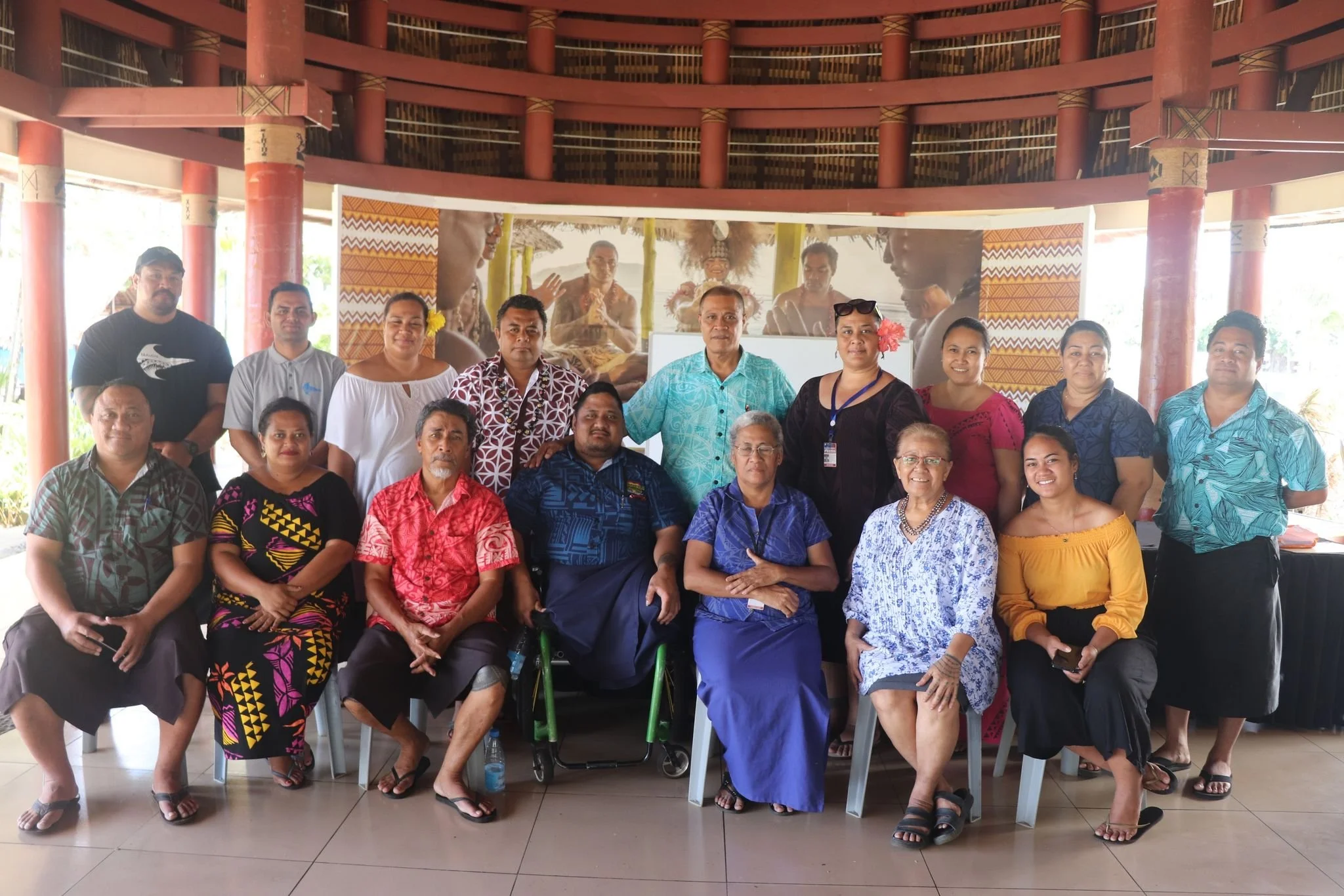Media practitioners seek to elevate the standard of journalism
Media professionals convened for the Samoa Media Capability Mapping Study Dialogue held at the Samoa Tourism Authority (S.T.A.) guest fale on Tuesday, 27 September, 2022.
Photo: Tutuila Farao/Samoa Tourism Authority
Members of the Samoa media met on Tuesday to discuss the myriad of issues facing Samoan journalists and broadcasters in the effort to raise the bar for journalism across the board.
As it has been for the past 40 years, inadequate pay for professionals in journalism tops the lists of weaknesses and threats to the profession, some journalists say.
More than 20 journalists in print, online, television and radio voiced their concerns for the fourth estate during the Samoa Media Capability Mapping Study Dialogue held at the Samoa Tourism Authority (S.T.A.) fale Samoa.
The three-hour dialogue was hosted by the Journalists Association of Samoa (J.A.W.S.) in partnership with the Pacific Assistance Media Scheme (P.A.C.M.A.S.).
The study is supported with technical and financial assistance from P.A.C.M.A.S. in partnership with J.A.W.S.
The purpose of the dialogue was to gather views and comments from the media in order to identify capacity and training needs of mainstream media.
Participants worked in groups to brainstorm and present their ideas on the strengths, weaknesses, opportunities and threats to journalism. Participants also discussed what drives programming content and the changing media landscape due to internet platforms.
Inadequate or unfair pay has been an issue for journalists for more than 40 years, said Apulu Lance Polu, editor for Talamua Online Media.
“These issues are 40 years old,” he said.
Training needs for reporters has also been high on the list for as many decades, said Apulu.
The media and journalists are the fourth estate, an integral part of the democratic process, Apulu noted.
“We are part of the democratic process, we are the fourth estate,” he said.
“The framework is there but there needs to be upskilling.”
There must be continuous “professional development,” for members of the media, Apulu said.
No pay for months, delinquent or nonexistent National Provident Fund (N.P.F.) payments, political bias and competition between government and the private media sector were among the issues raised during the dialogue.
Poor pay leads to a brain drain in the media sector where trained professionals opt to leave the fourth estate for better pay and a less demanding workload in public service, some journalists said.
Radio Samoa reporter Maina Misa said she previously worked for a local media entity for eight (8) months without receiving a paycheck.
Turning to the government, Ms. Misa said the government must refrain from competing with the private sector media.
The Government Press Secretariat often gives preferential treatment to bigger mainstream media organizations, she said.
Government must treat all media organizations fairly and equally, she said.
It was a sentiment echoed by her Radio Samoa colleague, veteran journalist Galumalemana Tipi Autagavaia.
Government media must act as an equalizer and disseminate information to all media organizations at the same time, he said.
“The Government is a service provider, they should not be competitors with the private media sector,” said Galumalemana.
In regard to political affiliations, he said “neutrality” must be maintained when reporting on politics.
There is nothing about political affiliations in the Code of Ethics, but reporters must not allow their personal politics to influence news coverage and broadcasts, said Galumalemana.
“We all have political interests but when we do our work, there has to be political neutrality,” he said.
“We have to elevate the standard of media work.”
The need to inform the private sector of government news in a timely manner without favoritism for one media organization or another is vital so the media can properly inform the public in a timely manner, noted J.A.W.S. President Lagi Keresoma.
Writer for the government’s Savali newspaper Tusiga Taofiga suggested a meeting between J.A.W.S., the Media Council and the Press Secretariat to address such issues.
The study aims to understand the capability and gaps in the media sector.
It will cover organisational composition and resources, capacity and training needs, and seeks to understand audience needs and gauge awareness of media regulations.
Awareness of regulations for media that are outlined in the Media Code of Practice and Code of Ethics is also being examined in the study, said J.A.W.S. President Ms. Keresoma.
Many members of the media are not aware of what is contained in the Media Code of Practice and its Code of Ethics, she said.
The codes are there to guide the work of journalists and therefore it is a necessity for every member of the media to familiarize themselves with the codes, said Ms. Keresoma.
Findings of the study will inform future activities and support the media sector.
This will involve determining focus areas of support for the media sector and designing targeted support for media professionals.
P.A.C.M.A.S. is a media development program with the goal to facilitate discourse across government, business, and civil society via Pacific media.
It is currently in its third phase of operation (April 2017- December 2022).
The objective of P.A.C.M.A.S. Phase 3 is to improve the capacity of journalists and communication practitioners in the Pacific to report responsibly on and mediate discussion about key issues affecting development.
Former media and journalism lecturer for the National University of Samoa (N.U.S.) Misa Victoria Lepou has been contracted to carry out what is an important study for Samoa’s fourth estate.
Personal interviews with journalism and media practitioners will be carried out over a three week period and about 80 people will be interviewed for the study, she said.


